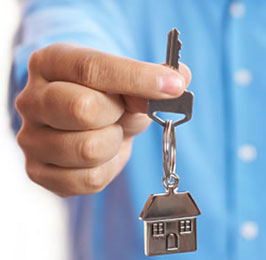Real estate in smart cities is undergoing a transformative revolution fueled by urban innovation. As the world’s population continues to migrate to urban areas, the demand for efficient and sustainable urban living solutions has never been greater. Smart cities, characterized by their integration of technology, data-driven decision-making, and sustainability initiatives, are at the forefront of this urban evolution. In these cities, real estate development is not merely about constructing buildings; it is about creating holistic and intelligent urban ecosystems that enhance the quality of life for residents. One of the defining features of real estate in smart cities is the emphasis on sustainability and eco-friendliness. Developers are increasingly incorporating green building practices, such as energy-efficient designs, renewable energy sources, and smart water management systems. These sustainable initiatives not only reduce the environmental impact of urbanization but also lead to long-term cost savings for both property owners and occupants.

Real estate developers are integrating IoT Internet of Things devices, sensors, and automation systems into buildings and infrastructure. This allows for real-time monitoring and optimization of various functions, such as traffic management, waste disposal, and energy consumption. Residents can enjoy benefits like efficient public transportation, reduced congestion, and improved air quality, all of which contribute to a higher quality of life. Additionally, these smart technologies enable property owners to remotely manage and control their homes, enhancing convenience and security. Data-driven decision-making is another critical aspect of real estate development in smart cities. Municipalities collect vast amounts of data from sensors and devices throughout the city. Real estate developers and urban planners use this data to make informed decisions about infrastructure development, zoning regulations, and land use. For instance, by analyzing traffic patterns and public transportation usage data, developers can strategically locate new residential or commercial properties to maximize accessibility and convenience for residents and businesses. In the realm of urban innovation, real estate development is not limited to traditional residential and commercial spaces.
Smart cities are also fostering the creation of mixed-use developments that integrate living, working, and recreational spaces within close proximity. These mixed-use developments reduce the need for long commutes and promote a sense of community learn more. They often include parks, green spaces, and cultural hubs, fostering social interaction and a vibrant urban environment. In conclusion, real estate in smart cities represents a dynamic and forward-thinking approach to urban development. With a focus on sustainability, technology integration, data-driven decision-making, and mixed-use developments, these cities are reshaping the way we live, work, and play in urban environments. As the world continues to urbanize For instance, buildings equipped with advanced insulation and energy-efficient appliances reduce utility bills, making them more appealing to tenants and investors alike., the principles of smart cities will become increasingly important in addressing the challenges of rapid urban growth while striving for a better quality of life for all.